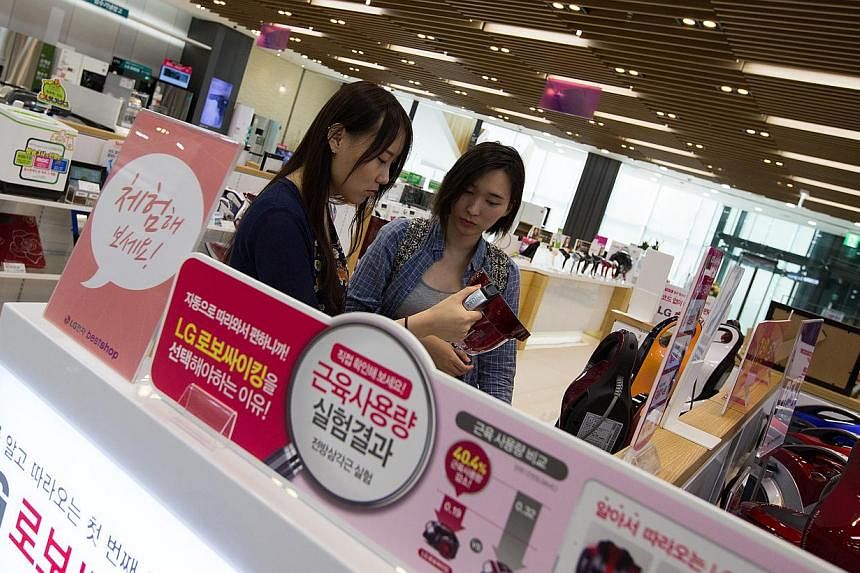SEOUL (Bloomberg) - Inflation in South Korea eased to the slowest pace since July 1999, adding to concern that prices could fall amid fragile demand at home and cheaper oil from abroad.
Consumer prices rose 0.4 per cent in March from a year earlier, Statistics Korea said in a statement on Wednesday, matching the forecast by economists in a Bloomberg survey. Core prices, which exclude oil and agricultural products, rose 2.1 per cent.
Finance Minister Choi Kyung Hwan has said he's worried about the risk of deflation while Bank of Korea Governor Lee Ju Yeol has described concerns of falling prices as "excessive."
That didn't stop the BOK last month joining more than two dozen other central banks in easing policy this year in the face of slowing inflation and growth.
"We're not in deflation, but we are at a stage where people should be worried about it," said Oh Suk Tae, a Seoul- based economist for SG Securities Co. "The central bank certainly should be concerned."
Excluding the increase in tobacco tax from this year, March consumer prices would have decreased 0.2 per cent, Kim Bo Kyoung, a director at Statistics Korea, said in a briefing in Sejong.
"Prices declines of city gas and agricultural products were also relatively big and further slowed inflation." Kim said.
The won appreciated 0.3 per cent to 1,106.40 per US dollar as of 9:49 a.m. in Seoul, according to data compiled by Bloomberg.
When the BOK lowered the benchmark interest rate to a record-low 1.75 per cent on March 12, it noted that economic growth and inflation were likely to trail its forecasts.
The central bank will update its outlook at an April 9 policy meeting, having previously forecast 3.4 per cent growth and 1.9 per cent inflation for 2015.
South Korea isn't alone in experiencing slowing price gains or even declines. Japan's key inflation gauge ground to a halt in February and Germany's inflation rate turned negative in January for the first time in more than five years.
Exports in Asia's fourth-biggest economy fell 4.2 per cent in March from a year earlier, the trade ministry said on Wednesday. It was the biggest drop in more than two years. Imports contracted 15 per cent.
Kang Hyun Gu, a Seoul-based economist at Taurus Investment Securities Co. Kang said that while domestic demand is weak now, the impact of lower oil prices is temporary.
"By next year, CPI in South Korea should revert back to about 1.5 per cent to 2 per cent with an improving global economy and as oil prices recover," said Kang.

